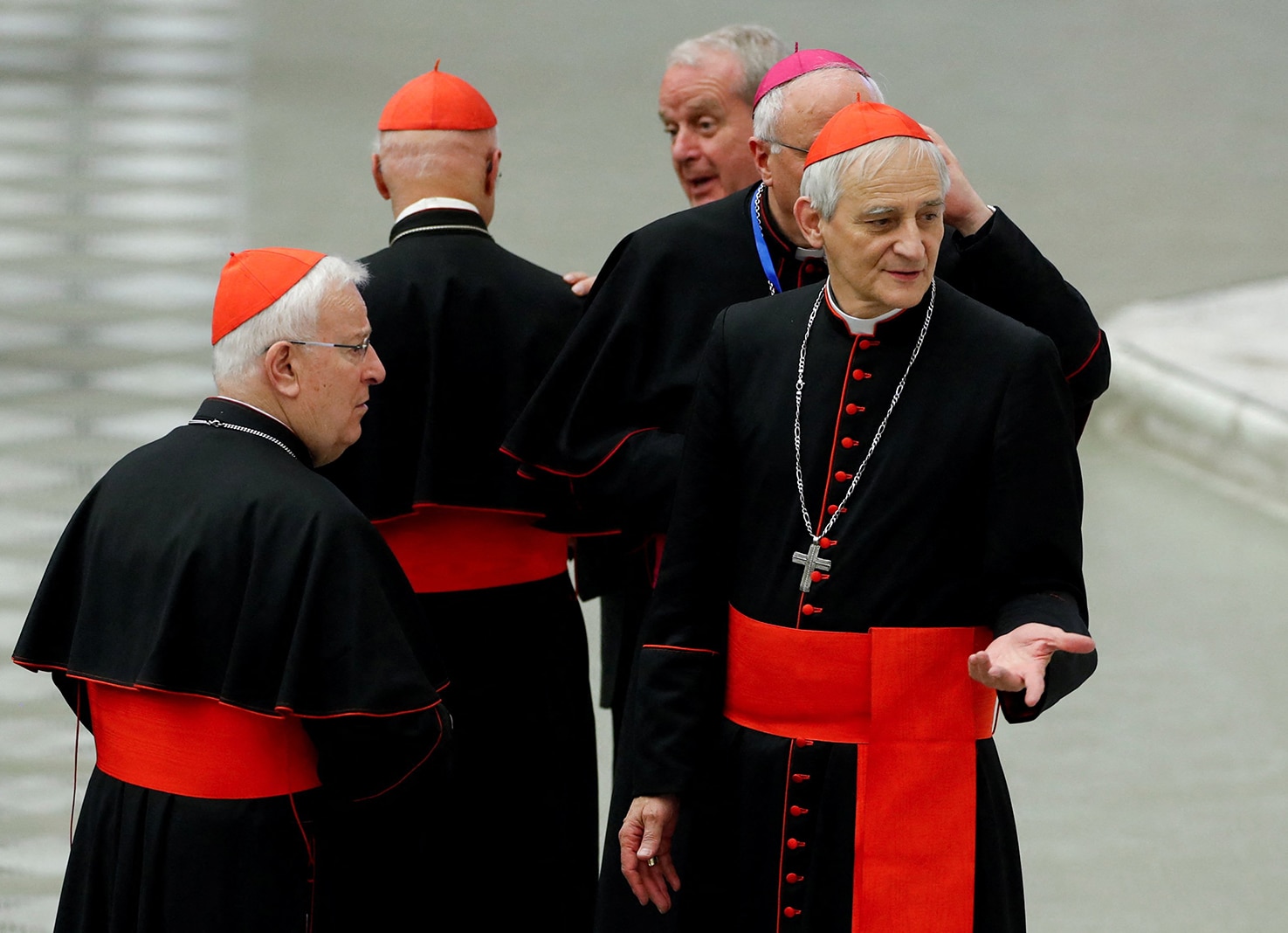(OSV News) — As the U.S. marked National Human Trafficking Awareness Day on Jan. 11, the head of a faith-based network seeking to end the practice told OSV News “progress has been made” in abolishing modern slavery.
“Twenty years ago, I don’t know that we would have necessarily had the understanding of what the issue was, let alone the language that we have around it (and) … the services, the research, the nonprofits,” said Katie Boller Gosewisch, executive director of the Alliance to End Human Trafficking.
Founded in 2013 as U.S. Catholic Sisters Against Human Trafficking, the alliance now includes more than 200 congregations of women religious, along with coalitions and individual members, all working to eradicate modern slavery through education, advocacy, survivor services and faith resources.
According to the International Labor Organization, some 27.6 million are trapped in a form of forced labor, and another 22 million in forced marriages.
Of those in forced labor, 39.4% are women and girls — 4.9 million in forced commercial sexual exploitation and 6 million in other economic sectors. Some 3.3 million, or 12%, are children, more than half of whom are commercially exploited for sex. Forced labor generates $236 billion in illegal profits annually.
The alliance offered a toolkit for the Jan. 11 national observance — which was established by Congress in 2007, and which also features a “Wear Blue Day” initiative to signal support for ending trafficking — as well as a full month of awareness that culminates with the International Day of Prayer and Awareness on Feb. 8, the feast of St. Josephine Bakhita.
Born into slavery in Sudan, Bakhita eventually became a Canossian sister in Italy. Since her canonization by Pope St. John Paul II in 2000, she has become the patron saint of human trafficking survivors.
A ‘long history of speaking out on the rights of workers’
The alliance’s toolkit features a number of Catholic resources, drawn from what the organization calls the church’s “long history of speaking out on the rights of workers.”
Scripture and Catholic social teaching clearly affirm humanity’s God-given dignity, as well as the dignity of work and the rights of workers. Pope Leo XIII’s 1891 encyclical “Rerum Novarum” further outlined Catholic teaching on capital and labor. The Second Vatican Council’s Pastoral Constitution on the Church in the Modern World, “Gaudium et Spes,” deplored among other abuses ” slavery, prostitution, the selling of women and children; as well as disgraceful working conditions, where men are treated as mere tools for profit, rather than as free and responsible persons.”
Gosewisch told OSV News that Pope Francis’ declaration of the 2025 Jubilee Year, the theme of which is “Pilgrims of Hope,” provides further impetus to ending modern slavery.
“Hope is the aspiration to happiness that God has written on our hearts,” she said. “I think that without hope, looking at this situation (of human trafficking) would be very, very dire.”
Those who dedicate themselves to eradicating human trafficking “really need hope,” she added.
Having hope ‘is very necessary’
“It’s a difficult area to work in. It can be dangerous, it can be sad, it can be heartbreaking,” she said. “So having that hope is very necessary.”
Gosewich admitted that “people do ask, ‘Do you really think you can end human trafficking?'”
Her answer is immediate.
“Yes, I do,” she said. “Do I think it’s going to be easy? No. Do I think it’s going to happen tomorrow? No. But I do think that what we need to work on is eliminating the root causes of human trafficking. I think we need to work on understanding the humanity of each of us — and honoring that humanity.”
No one outreach can solve the problem, she said.
“It’s not going to be just law enforcement,” she said. “It’s going to be law enforcement and social services; it’s going to be education and health care. It’s going to be all sorts of different arenas pulling together to do it. … It’s going to take a village of people.”








